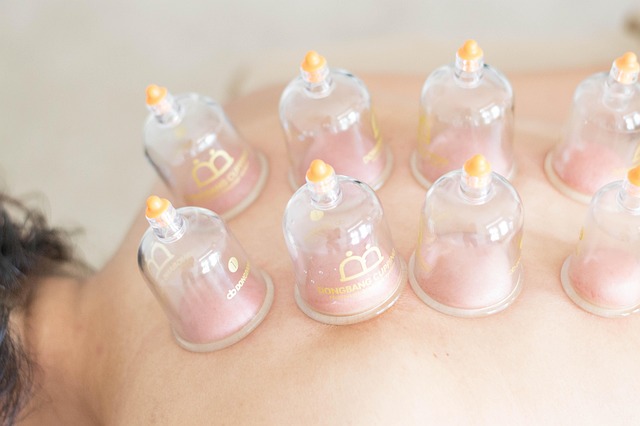Mindfulness therapy, rooted in ancient meditation practices, guides clients to observe thoughts and feelings without judgment in the present moment, cultivating calm and understanding. Through exercises like deep breathing and body scans, individuals enhance well-being, self-acceptance, and resilience against stress. Integrating mindfulness into therapeutic sessions is a prominent and effective method for promoting emotional health, reducing anxiety and depression, and fostering inner peace and balance in daily life. Regular mindfulness practice improves self-care strategies, emotional regulation, and overall mental well-being, empowering individuals to lead more balanced and fulfilling lives.
“Unwind and transform your mental health journey with an exploration of mindfulness therapy, a game-changer in self-care strategies. This article guides you through the gentle art of cultivating inner peace and emotional balance. We’ll delve into the benefits of integrating mindfulness techniques within therapeutic sessions, uncovering its impact on overall well-being and personal growth. Additionally, discover practical tips to seamlessly incorporate mindfulness into daily life and therapy practices.”
- Understanding Mindfulness Therapy: A Gentle Approach to Self-Care
- Integrating Mindfulness Techniques into Therapeutic Sessions
- Benefits of Mindfulness for Emotional Well-being and Growth
- Practical Tips for Incorporating Mindfulness in Daily Life and Therapy
Understanding Mindfulness Therapy: A Gentle Approach to Self-Care

Mindfulness therapy is a gentle and powerful approach to self-care, focusing on bringing one’s attention to the present moment. It encourages individuals to observe their thoughts and feelings without judgment, fostering a sense of calm and awareness. This therapeutic technique is based on ancient meditative practices but has been adapted for clinical settings. By integrating mindfulness into sessions, therapists help clients develop a deeper understanding of themselves and their reactions to stress or difficult emotions.
Through simple yet effective exercises, such as deep breathing, body scans, or guided meditations, individuals learn to regulate their mood and enhance their overall well-being. Mindfulness therapy promotes self-acceptance, encouraging people to embrace their experiences rather than reacting with anxiety or avoidance. This strategy enables clients to navigate life’s challenges more effectively, improving their ability to manage stress and fostering a sense of resilience.
Integrating Mindfulness Techniques into Therapeutic Sessions

Incorporating mindfulness techniques into therapeutic sessions has emerged as a powerful approach in modern mental health care. Mindfulness, rooted in ancient meditative practices, involves cultivating present-moment awareness and non-judgmental attention to one’s thoughts, feelings, and bodily sensations. Therapists can integrate these techniques to create a safe and supportive environment for clients, fostering deeper self-awareness and emotional regulation.
During sessions, therapists may guide clients through mindfulness exercises such as breathing meditations, body scans, or mindful walking practices. These activities encourage individuals to focus on the here and now, reducing rumination on past experiences or anxiety about the future. By regularly incorporating mindfulness into therapy, clients can develop enhanced self-care strategies, improve their ability to manage stress, and cultivate a greater sense of inner peace and balance in their daily lives.
Benefits of Mindfulness for Emotional Well-being and Growth

Mindfulness, a core component of many therapeutic practices, offers profound benefits for emotional well-being and personal growth. It involves cultivating present-moment awareness, focusing on the here and now without judgment. Through mindfulness therapy, individuals learn to observe their thoughts and emotions as they arise, fostering a deeper understanding of their internal experiences. This practice helps reduce reactivity to stressful situations, enabling people to respond rather than react, thereby improving emotional regulation.
The integration of mindfulness into therapeutic sessions encourages individuals to develop a non-judgmental inner dialogue, leading to increased self-compassion and resilience. By acknowledging and accepting their feelings, clients can create space for emotional healing and growth. This practice has been shown to enhance overall mental health, reduce symptoms of anxiety and depression, and promote a sense of calm and clarity, ultimately empowering individuals to lead more balanced and fulfilling lives.
Practical Tips for Incorporating Mindfulness in Daily Life and Therapy

Incorporating mindfulness into daily life and therapy is a powerful strategy for enhancing overall well-being. Start by setting aside dedicated time each day for mindfulness practices, such as meditation or deep breathing exercises. These simple yet effective techniques can help reduce stress and anxiety, allowing you to approach challenges with greater clarity and resilience. During therapeutic sessions, therapists can guide clients through mindfulness activities tailored to their specific needs. This might involve body scans, guided visualizations, or mindful movement practices like yoga or tai chi.
For optimal results, make mindfulness a seamless part of your routine. Incorporate it into everyday tasks—for example, when brushing your teeth, focus on the sensory experience and the act of breathing. Being present in the moment not only improves mental health but also fosters a deeper connection with yourself and others. By integrating mindfulness therapy into daily life, individuals can develop a stronger sense of self-awareness, emotional regulation, and overall balance.
Mindfulness therapy, with its gentle approach to self-care, has proven to be a powerful tool for enhancing emotional well-being and fostering personal growth. By integrating mindfulness techniques into therapeutic sessions, professionals can create a supportive environment that empowers clients to navigate life’s challenges with greater ease. The benefits extend far beyond the therapy room, as practical tips for incorporating mindfulness into daily routines enable individuals to cultivate a deeper sense of presence and resilience. Embracing mindfulness therapy is not just a trend; it’s a transformative path towards a more balanced and fulfilling life.
